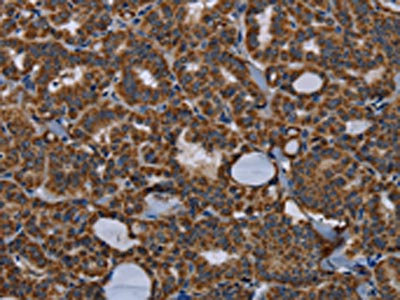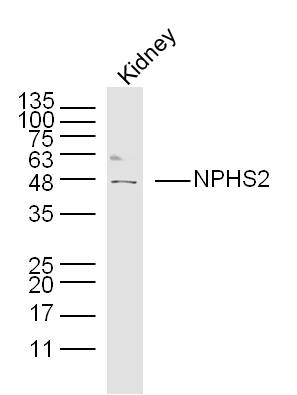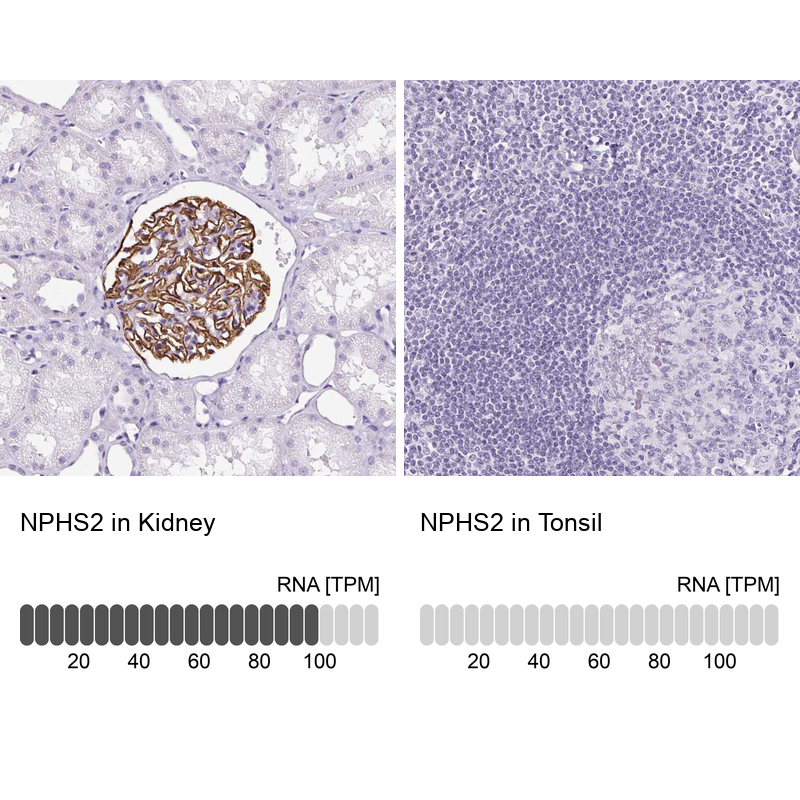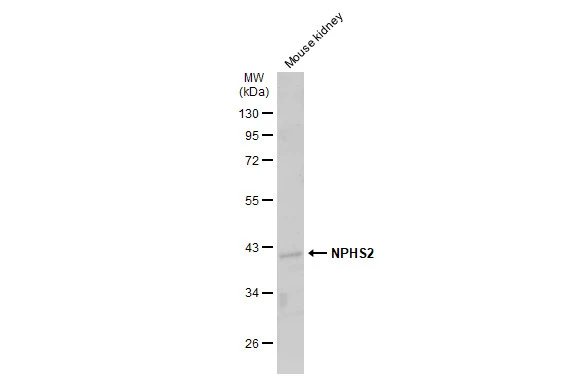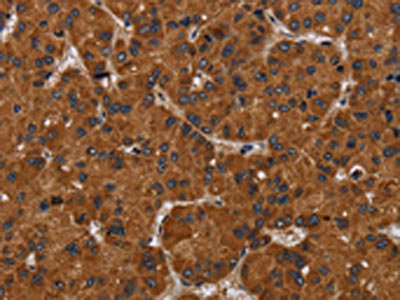
The image on the left is immunohistochemistry of paraffin-embedded Human liver cancer tissue using CSB-PA172361(NPHS2 Antibody) at dilution 1/40, on the right is treated with synthetic peptide. (Original magnification: X200)
NPHS2 Antibody
CSB-PA172361
ApplicationsELISA, ImmunoHistoChemistry
Product group Antibodies
ReactivityHuman, Mouse, Rat
TargetNPHS2
Overview
- SupplierCusabio
- Product NameNPHS2 Antibody
- Delivery Days Customer20
- ApplicationsELISA, ImmunoHistoChemistry
- CertificationResearch Use Only
- ClonalityPolyclonal
- ConjugateUnconjugated
- Gene ID7827
- Target nameNPHS2
- Target descriptionNPHS2 stomatin family member, podocin
- Target synonymsPDCN, SRN1, podocin, NPHS2, podocin, nephrosis 2, idiopathic, steroid-resistant (podocin)
- HostRabbit
- IsotypeIgG
- Protein IDQ9NP85
- Protein NamePodocin
- Scientific DescriptionThis gene encodes the glomerular protein podocin which plays a role in the regulation of glomerular permeability, and acts as a linker between the plasma membrane and the cytoskeleton. Defects in this gene are the cause of autosomal recessive steroid-resistant nephrotic syndrome (SRN). SRN is characterized by onset between three months and five years, resistance to steroid therapy and rapid progression to end-stage renal disease. An alternative splice variant has been described but its full length sequence has not been determined.
- ReactivityHuman, Mouse, Rat
- Storage Instruction-20°C or -80°C
- UNSPSC41116161

